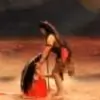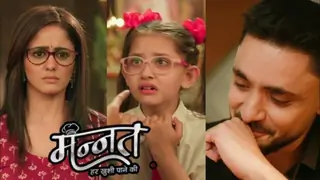After Krishna had placed the chariot between the two armies and in front of Bhishma and Drona, He told Arjuna "Behold these Kauravas assembled here" (1:25)And Arjuna saw all his relations- uncles, nephews, teachers, those related through marriage stationed there in front of him.
And THEN, the awful thought hits him with a convincing finality - He would have to fight those in front of him. And Kill them. It was going to be fight to finish.
Admittedly, he had faced these same warriors -Bhishma, Drona, et all in the Matsya War (during the closing days of their exile) and had no problems defeating them single handedly. But he had fought that war as a surrogate for the Matsya prince, Uttara. And because of the circumstances, it had then been enough for Arjuna to merely incapacitate and defeat them. Which he easily did with the Sammohan Astra.
But, this moment, Arjuna realized , was like no other. He would now have to fight to kill his beloved grandfather, revered guru and others whom he cherished. And the magnitude of this realization overwhelms him.
In his own words, his mouth begins to run dry, his limbs begin shaking, his brain is whirling and even the Gandhiva, which he used to grip proudly, now slips from his hands.
He is done. He cannot fight this war. Period.
As if answering Krishna's questioning eyes, Arjuna begins to vent out his feelings, his vishada.
In the next fifteen verses, (31 to 46 ) Arjuna gives reason after reason on why a war of this kind will only have negative repurcussions. In one verse he says that there could be no greater sin than the killing of his own family memebrs, so why should he, Arjuna , be a party to such a sin.(verses no 38 and 39)
In another verse he tries to justify his stance by pointing out how the society as whole will degenerate when such a large scale destruction will take place. (verses no 41,42,43,44)
Suddenly , the lac house, the dice game, Draupadi's dishonour, Karna, all are forgotten.
Arjuna's mind has weaved a confusing web around his brain. He is overwhelmed by the thought that this may be the last time he would be able to see Bhishma and Drona alive, and a more painful thought- that he, the greatest archer in the Pandava army, would have to fell them down.
He is suddenly worried about consequences of the enormous destruction a war of this scale would cause. Women widowed, children orphaned, kingdoms rendered leaderless.
No, he, Arjuna does not want to be a part of all this. Duryodhana can enjoy not just Indraprastha but the all the kingdoms in the three worlds. Arjuna will not raise a finger. Better still, let the Kauravs kill him, an unarmed and unresisting Arjuna (verse no 46)





































